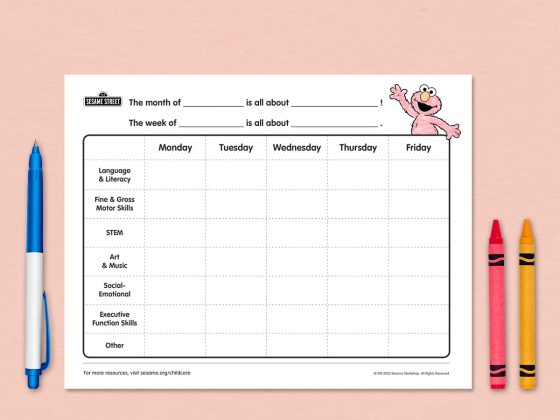
Lesson Planning Practice
A tool to plan opportunities for learning connected to monthly and weekly themes.
Brainstorm a few ideas each day that fit for you and the children in your care. You don’t need to have something planned every day. If you don’t get to all of the ideas, that’s okay, too! Try out these suggestions for getting started:
- Using the printable page, start with a monthly theme. (Check out the article Planning Our Days: Routines for Childcare Programs for some inspiration!)
- Choose weekly topics that fit into the monthly theme.
- Map out a daily schedule that includes time for learning in different developmental domains.
- Choose activities that complement the weekly topic and support whole-child learning.
- Finally, weave in outings, celebrations, and special events.
If you’re having a tough time finding activities that fit into the developmental domains, don’t worry! Check out the links below for inspiration and resources to support children in the following topics:
- Language and Literacy
- Language and literacy are important skills for children as they learn to communicate. You can encourage these skills by reading books, talking together and asking questions, and exploring the alphabet through games and songs.
- Fine and Gross Motor Skills
- Gross motor skills are the abilities to move and coordinate large muscles in the body, like crawling, walking, and jumping. Physical activity and outdoor play are great ways to support gross motor skills. Fine motor skills are the abilities to control the small muscles in the hands and fingers. Children can develop these skills by doing activities like writing, cutting, peeling stickers, and even zipping up their jackets!
- STEM
- STEM stands for Science, Technology, Engineering, Math. Exploring shapes, numbers, and patterns can all build math skills! By encouraging curiosity, exploration, and investigation, you’re helping children develop science skills.
- Art and Music
- There are so many ways to include art and music! Children can explore a variety of different materials (like crayons, paintbrushes, markers, or play dough). Listening to music, taking part in dancing, and playing instruments allow children to learn more about music and sound.
- Social-Emotional
- Social-emotional skills are the abilities children need to build relationships and notice, name, and regulate their feelings. Sharing and taking turns, talking about different kinds of feelings (like happy, sad, excited, frustrated, scared), learning calming strategies (like taking deep breaths), and making friendships are all ways to help children build social-emotional skills.
- Executive-Function Skills
- Executive-function skills help children learn, hold information in their minds, control their actions, and follow a task through to the end. Encouraging problem solving (like puzzles) or memory recall (like matching games) as well as playing games that promote self-control (like Simon Says or Red Light, Green Light) can help build these skills.
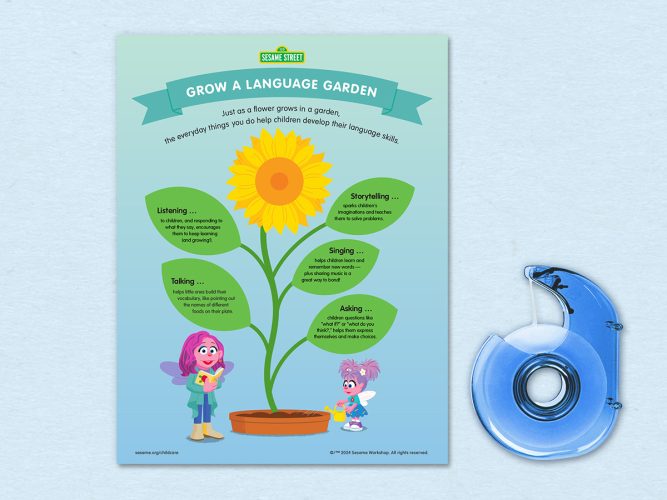
Growing a Language Garden: Everyday Language Development
A reminder of the simple things you do every day that nurture children’s language skills.
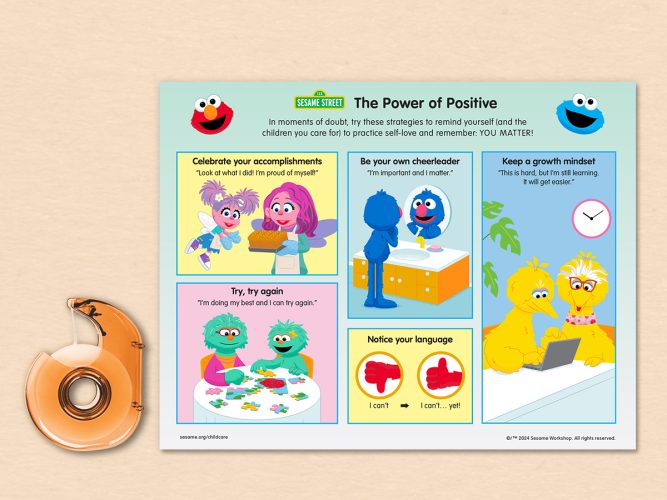
The Power of Positive
Gentle reminders for practicing self-kindness and compassion.
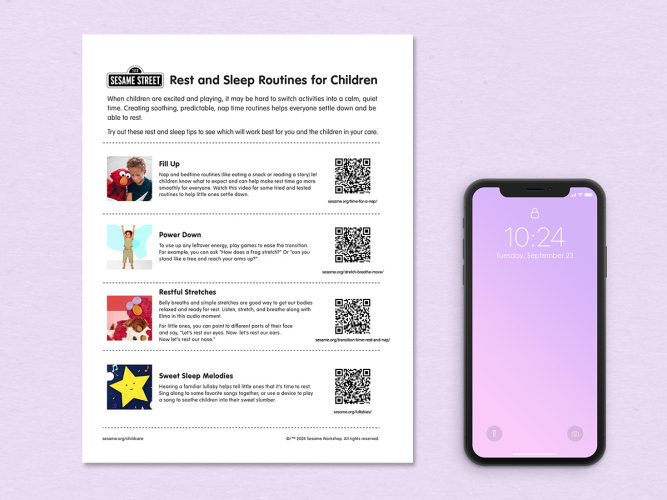
Routines to Help Children Rest and Sleep
Soothing, predictable, nap and bedtime routines can help children settle down for rest.

Cultural Connections through Family Engagement for Building Stronger Bonds

Mindful Caregivers
Practicing mindfulness is a great way to slow down and reset.
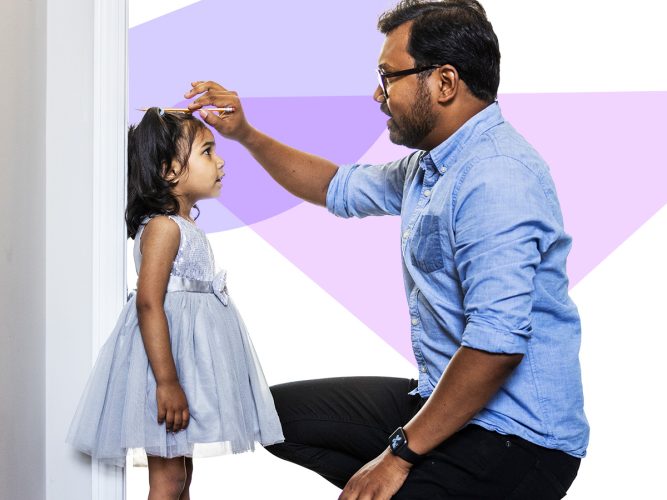
Tracking Child Development: A Caregiver’s Guide
Keeping track of milestones and going to routine screenings helps children stay healthy and thriving.

The Heart of Communities: Supporting and Celebrating Family, Friend, and Neighbor Caregivers
